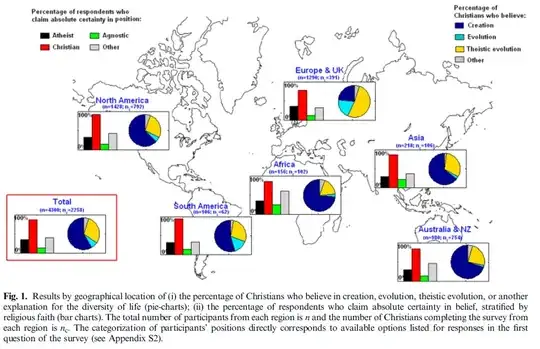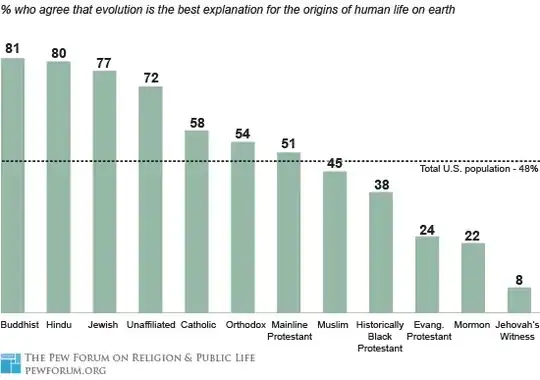I've seen this claim several times in the atheist community, as a pragmatic counter to the idea that belief-in-evolution is incompatible with Christianity.
But is it true?
Note that by "evolutionist" I specifically mean a person who believes changes in allele frequency have accumulated for hundreds of millions of years, resulting in adaptation, speciation, and generally modern life-forms as we know them. Someone who believes in an old earth, in "macroevolution", but not necessarily in abiogenesis. And by "Christian" I just mean someone who self-identifies as that.
Answers with variations on those definitions are fine, but please call it out.
Also note that there's two parts to the claim:
Of the people who identify as Christian, do more than 50% say "Yes" when polled on whether they believe in biological evolution?
Of the people who say "Yes" when asked if they believe in biological evolution, do more than 50% identify as Christian?

